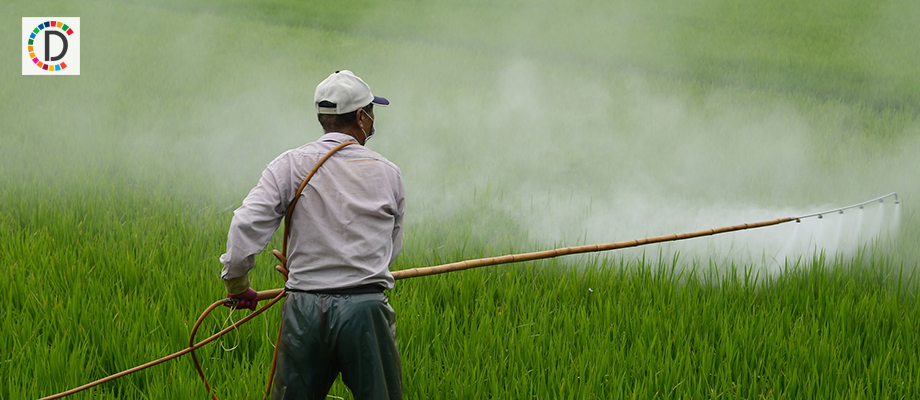Nestlé Responds to Allegations of Racial Stereotypes in Infant Food Advertising
Nestlé India denies allegations of racial bias in its infant food formulation. The company claims its sugar content meets global standards and is lower than permitted limits. The formulation is based on nutritional needs, not ethnicity. Nestlé acknowledges FSSAI's inquiries but maintains its products are safe and compliant. The Indian baby food market is expected to grow significantly, with Nestlé facing competition from Danone, Abbott, and others.

Nestle India Chairman & Managing Director Suresh Narayanan on Monday asserted that the company's infant food formulation for children below 18 months is done on a global basis and the allegation that ''it is racially stereotyped is unfortunate'' and untrue.
Addressing reporters here, he said the amount of sugar content in infant foods is determined by the capability to meet the nutrition profile of a particular age group and that is universal. Nestle India's added sugar content in Cerelac is much lower than the upper limit prescribed by FSSAI, he added.
''There is nothing in this product that makes it a product that is potentially of any risk or any kind of harm to the child,'' he said.
As far as Nestle is concerned, he said a majority of sugars present in the product are natural sugars. As per the Food Safety & Standards Authority of India (FSSAI), the permissible level of added sugar is 13.6 grams per 100 grams of feed.
''Nestle is 7.1 grams, which is well below the standards and the maximum limits set up,'' Narayanan asserted.
Earlier this month, Swiss FMCG major Nestle was accused of selling products with more sugar content in less developed countries.
According to findings by Swiss NGO, Public Eye and International Baby Food Action Network (IBFAN), Nestle sold baby products with higher sugar content in less developed South Asian countries including India, and in African and Latin American nations as compared to its markets in Europe.
Countering the allegations, Narayanan said that every formulation for child food below 18 months is done on a global basis.
''There is no local kind of approach to making a nutritional adequacy study...Globally, the recipes are engendered in an age where energy dense products are needed by growing children. So there is no distinction that is made between a child in Europe and a child in India or any other parts of the world,'' Narayanan said, adding the Codex requirement is fully followed up for Cerelac.
How this formulation gets translated into a product locally depends ''on different considerations on local regulatory requirements on local availability of raw materials on some of the maternal feeding habits'', he added.
''I also want to add here very clearly that (both) added-sugar products and no-added-sugar products are present in Europe as well as in Asia. So the unfortunate allegation that it is racially stereotyped is unfortunate ... untrue,'' he said.
Explaining the rationale behind added sugar content in Nestle's baby food in India, Narayanan said meeting the ''nutritional profile'' could be different and the ingredients could also be different.
''That we have the need in India is the reason why we have added this, but at levels which are much lower than what is even specified by the local regulator and I think one has to have the trust and confidence that the local regulator knows what we are putting there. So, it's not a dramatic deviation that has been done,'' he said.
So, he said, ''What all that we're saying is that, yes added sugar is there, the content is declared in our packs. There has been a 30 per cent reduction in the last five years and there is a further journey to reduce it to whatever will be the bare minimum.'' Further, Narayanan said, ''What is important for us is to develop a product for the Indian infant which is compatible with the global standards and that's the objective and that's done with levels of ingredients which are not harmful.'' He acknowledged that food regulator FSSAI through a ''set of questions'' has sought information on the sugar content in Cerelac from Nestle India.
The Codex is a collection of internationally recognised standards, codes of practice, guidelines, and other recommendations published by the Food and Agriculture Organisation of the United Nations relating to food, food production, food labelling, and food safety. India is also a part of the Codex committee.
According to a report from IMARC Group, the Indian baby food and infant formula market size reached USD 5.4 billion in 2022 and is expected to reach USD 8.1 billion by 2028, with a CAGR of 5.7 per cent during 2023-2028.
Nestle competes in this fast-growing baby food space with Danone, Abbott, Gujarat Cooperative Milk Marketing Federation and Raptakos Brett among others in India.
(This story has not been edited by Devdiscourse staff and is auto-generated from a syndicated feed.)










